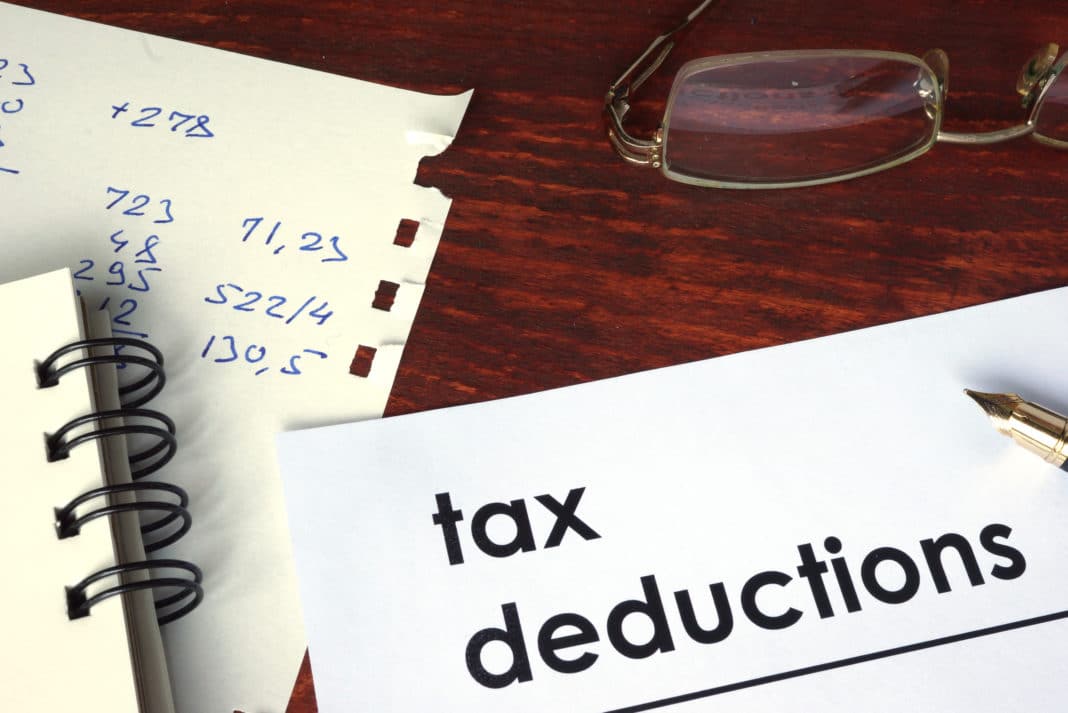Smart entrepreneurs take advantage of every tax deduction available.
Nobody will thank you for paying extra taxes. As an entrepreneur, you’re responsible for finding your own tax deductions.
What are the best tax deductions for self-employed entrepreneurs? How much money can you save with tax deductions? Discover the best tax deductions for self-employed entrepreneurs today.
Home Office Expenses
Many self-employed entrepreneurs work from home. If you work from home, then you can deduct home office expenses from your income.
The home office deduction is complicated, but it can deduct thousands of dollars from your taxes every year.
To qualify for a home office tax deduction, you must use your home office regularly and exclusively for your business. During an audit, the IRS may ask for a diagram of your workspace with accurate measurements.
If your home office meets the qualifications, then you could deduct all of the following:
- Mortgage interest
- Home depreciation
- Utilities (like electricity and water)
- Homeowners insurance premiums
- Repairs paid during the year
You can only deduct a percentage of the above costs based on the size of your home office. If your home office takes up 5% of the square footage of your home, for example, then you could deduct 5% of all of the expenses above.
Both homeowners and renters can use the deductions above. If you rent your apartment and have a qualifying home office, then you can deduct an equivalent amount of rent every month. Certain deductions, like mortgage interest and home depreciation, are exclusively for homeowners.
Home office expenses are the biggest and most important deductions for self-employed entrepreneurs. Ignoring these deductions can lead to unnecessary taxes.
Continuing Education
Smart entrepreneurs invest in themselves. Fortunately, entrepreneurs who invest in themselves may be able to claim certain expenses as a tax deduction.
If you completed “qualifying work-related education” during the tax year, then you can deduct expenses related to that education. The IRS lets you deduct things like:
- Tuition
- Books
- Supplies
- Lab fees
- Transportation to and from classes
- Other expenses related to your education
To qualify for this deduction, the IRS requires the education to maintain or improve the skills needed in your present work.
If you’re a programmer and take a coding class, for example, then you could deduct the cost of the class. However, if you’re a welder taking a coding class, you would not be able to deduct the class, as you’re using the class to change careers – not to further your current career.
Credit Card Interest and Loan Interest
Do you use a credit card for business expenses? You could claim credit card interest as a tax deduction.
The IRS lets you deduct interest accrued on purchases that were business expenses. If you bought a $10,000 printer on your credit card, for example, and you use that printer for work purposes, then you can claim any interest accrued on your card from that purchase.
Similarly, self-employed entrepreneurs can claim general loan interest. If you borrowed money to fund business expenses, then you can deduct any interest accrued on that loan.
Travel Expenses & Meals
Self-employed entrepreneurs claim travel expenses and meals differently than small businesses. Small businesses have more leeway for claiming food and travel expenses. Self-employed entrepreneurs may need to meet stricter requirements.
If you drive from your home office to Starbucks every day for a cup of coffee, for example, then you generally cannot claim this as a tax deduction – even if you feel you need coffee to work.
The IRS lets you deduct travel and meal expenses related to legitimate business purposes. If you flew across the country for a conference, took a client to dinner, or paid other legitimate business expenses, then you can deduct these costs from your taxes.
Some travel expenses and meal costs to deduct include:
- Flights
- Hotels
- Uber or taxi costs
- Other travel-related expenses for business trips
You can only deduct expenses for yourself or an employee. You cannot deduct travel expenses for a spouse or children. The IRS also forbids you from claiming meals that are “lavish or extravagant.”
Prior to 2021, the IRS only lets you claim 50% of meal expenses as a self-employed entrepreneur. Moving forward, the IRS lets self-employed entrepreneurs deduct 100% of most qualifying meals.
Other Deductions for Self-Employed Entrepreneurs
You could deduct all of the following, depending on your situation:
- Internet and phone bills
- Health insurance premiums
- Publications and subscriptions
- Startup costs
- Advertising expenses
Auto Insurance Premiums
You may be able to deduct auto insurance from your taxes. If you use your car for work, then you can usually deduct a percentage of the insurance and other costs as a business expense. As long as you drive your car for work purposes and have valid auto insurance, you should be able to deduct a portion of your auto insurance premiums from your taxes.
If you use your car for work purposes, you can deduct other vehicle-related expenses. Use the IRS’ standard mileage rate (56 cents per mile in 2021), and multiply that amount by the number of miles you drive for work each year. Keep a total mileage log, as you’ll need it for an audit.
Final Word
Taking advantage of tax deductions is a smart business.
If you want to be a successful entrepreneur, take advantage of the tax deductions mentioned above. Keep more money in your pocket this tax season.



